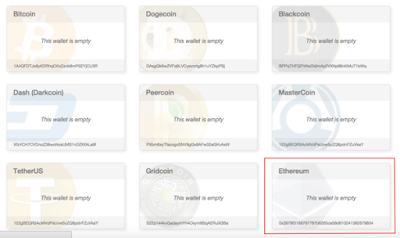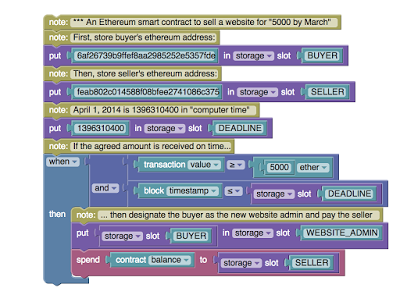
Ethereum and Arcade City could kill Uber
How it works
It works through the Ethereum Blockchain
Where can we move with Arcade City?
Open your free digital wallet here to store your cryptocurrencies in a safe place.

Ethereum Launches Homestead
“You need to look at the growth of the Ethereum network via the growth of its nodes, sitting at 5,100 versus bitcoin’s about 6,000 roughly. That’s quite significant and shows the stability and global nature of the Ethereum network,” commented Mougayar.
Homestead vs Frontier
“Homestead’s arrival will begin to demonstrate the next generation of blockchain technology, whereby anything we can dream of, can be accomplished in a decentralized manner using Ethereum.”
Ethereum helps Car Charging
In Germany the startup called Slock is working with RWE on a project to use Ethereum for car charging uses.
Open your free digital wallet here to store your cryptocurrencies in a safe place.

Ethereum used for Car Charging in Germany
Germany supports green power
Car Charging with Smart Contracts
Open your free digital wallet here to store your cryptocurrencies in a safe place.
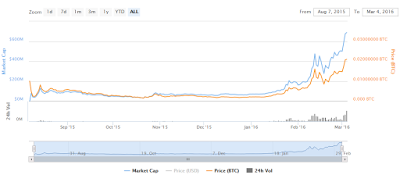
Ethereum is bigger than ever
Microsoft Corporation certified Ethereum
But, what is Ethereum?
Open your free digital wallet here to store your cryptocurrencies in a safe place.

‘We’re All in on Blockchain’, says IBM
“We are all in on Blockchain”: these were the words of IBM Director John Wolpert during the today Blockchain Conference in San Francisco. According to Wolpert the blockchain needs a more collaborative approach, which is not always guaranteed by the blockchain developers.
Open your free digital wallet here to store your cryptocurrencies in a safe place.
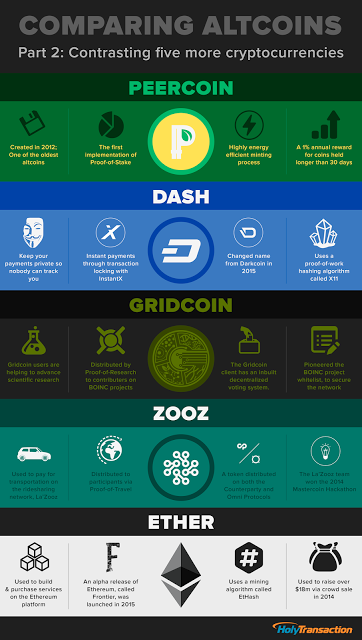
Infographic: Comparing Altcoins – Part 2
Open your free digital wallet here to store your cryptocurrencies in a safe place.

HolyTransaction adds Ethereum

HolyTransaction is excited to announce support for a new cryptocurrency, as well as a renewed focus on our international customers. The last cryptocurrency that we added was Gridcoin, and now we have added Ethereum’s crypto fuel – Ether.
Ethereum is one of the most interesting decentralized projects that have been released in Bitcoin’s wake and we support its goals. Smart contracts can’t come soon enough!
Now, with HolyTransaction, you have:
– Send and receive Ether
– Ethereum server side wallet creation and transaction signing
– Set OTP for additional protection
About Ethereum
Ethereum is a decentralized platform that users can use to run smart contracts. Smart contracts are applications that run exactly as programmed (with a Turing complete language) without the possibility of downtime, censorship, fraud or 3rd party meddling. The Ethereum platform uses Ether as its “crypto-fuel.”
Open your free digital wallet here to store your cryptocurrencies in a safe place.

Microsoft to Sponsor the Ethereum DΞVCON1 Conference
“DΞVCON1 is very excited to work with Microsoft and we look forward to having them in London.”Microsoft’s head of US Technology Financial Services, Marley Gray, explained more specifically why Microsoft had taken an interest in this international and decentralized technology event:“Microsoft is excited to sponsor and attend Ethereum’s DevCon1. We find the Ethereum blockchain incredibly powerful and look forward to collaborating within the Ethereum Community. We see a future where the combination of Microsoft Azure and Ethereum can enable new innovative platforms like Blockchain-as-a-Service. This will serve as an inflection point to bring blockchain technology to enterprise clientele”.
Ethereum DevCon1 Is Bringing Interesting Companies and People Together… For a Better FutureAlready, it has been confirmed that not only will Microsoft be in attendance, but so will Nick Szabo. That is actually no surprise given that Szabo coined the term “smart contract” many many years ago and has become increasingly vocal on the internet as his pet idea has started to come to fruition. Smart contracts are a large part of Ethereum’s mainstream appeal, though the concept is still in the process of gaining momentum. The future prospects of robots and computers replacing humans for certain types of jobs has always been on the fringe of human imagination. The more you think about smart contracts, the more you realize that such a futuristic world couldn’t exist in a stable state without something like smart contracts. As panelists at the Money20/20 conference stated:
“Cryptocurrency is the most natural way for machines to pay machines.”
Bitcoin-inspired blockchain technology, of which Ethereum definitely is, has seen a lot of validation lately. Other Bitcoin-inspired blockchain technology like BitShares is also gaining traction, though not in the form of Microsoft sponsorships. Besides the fundraising and actual release of Ethereum’s Frontier alpha and a shaky first few days, the formation of a conference is a milestone that most “altchains” never achieve – not that there was any doubt that Ethereum would make it this far, anyways. After all, even Imogen Heap has even started using Ethereum, why wouldn’t Microsoft be next?
Open your free digital wallet here to store your cryptocurrencies in a safe place.
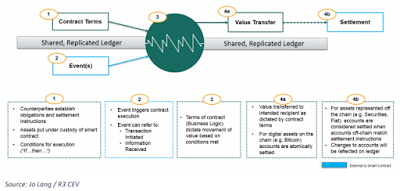
Smart Contracts as new laws? Better handle with care
Smart Contracts based on Blockchain technology.
Open your free digital wallet here to store your cryptocurrencies in a safe place.

Imogen Heap Releases New Single Using Ethereum
 In a recent event at Guardian live!, popular music artist Imogen Heap talked about the release of her new song, Tiny Human, on the Ethereum blockchain. By working with BitTunes, Ethereum Developers recently demonstrated smart contract functionality by purchasing the song using Ether. Imogen started with just a thought:
In a recent event at Guardian live!, popular music artist Imogen Heap talked about the release of her new song, Tiny Human, on the Ethereum blockchain. By working with BitTunes, Ethereum Developers recently demonstrated smart contract functionality by purchasing the song using Ether. Imogen started with just a thought:“And I thought, wouldn’t it be nice if I could decide what I wanted to do with my music, who I wanted to have it for free, or not have it for free?”
She eventually found her way to the bleeding edge of technology and has now officially brought her music to the digital age with blockchain smart contracts.
Music Is Finally Entering the Digital Age
Since the days of Napster, LimeWire, and even iTunes, music has come a long way in the digital age. Before physical mediums for music storage and music playing were developed, the only way to purchase music was to buy a single listen in the form of (likely) an orchestra or choral concert. With physical medium such as vinyl, cassettes, CDs, and now MP3s, the business model changed to allow consumers to buy “unlimited” listens by having the music file. Newer services such as Spotify, Pandora, and 8Tracks have created a newer business model that returns to using the “listen” as the basic unit of measurement. Music ownership has progressed and regressed; however, the connection between artist and music buyer has only continually grown wider and wider. Imogen commented:
Blockchain Technology Allows for New Possibilities
After talking about blockchain technology with her friend Zoë, Imogen realized that technology had finally reached a point where users could get a download that is connected to artists in a financial way. Imogen described her realization:“I realized there is actually a way that you can connect a file with its payment attached into a digital wallet. And so when somebody listens to a track — the technology is very close to being there — it immediately recompenses me, and then I can split it off to my choreographer, to Zoë for thanking her, to whatever, it can immediately go into their bank accounts. Instead of having to wait two years, sometimes, even more, for money to come back to me, it can be instant.”
It turns out that technology can benefit the fans, who can receive provable special attention from their favorite artist, and the artists, who can receive payments sooner and with less middle men in between. Imogen Heap’s decision to use Ethereum and blockchain technology now that she is free of the shackles of contracts made by record labels tells us something about the future. This same move toward smart contracts will be emulated in other industries. Ethereum, and by extension Bitcoin and blockchain technology as a whole, will change the world.
Open your free digital wallet here to store your cryptocurrencies in a safe place.
